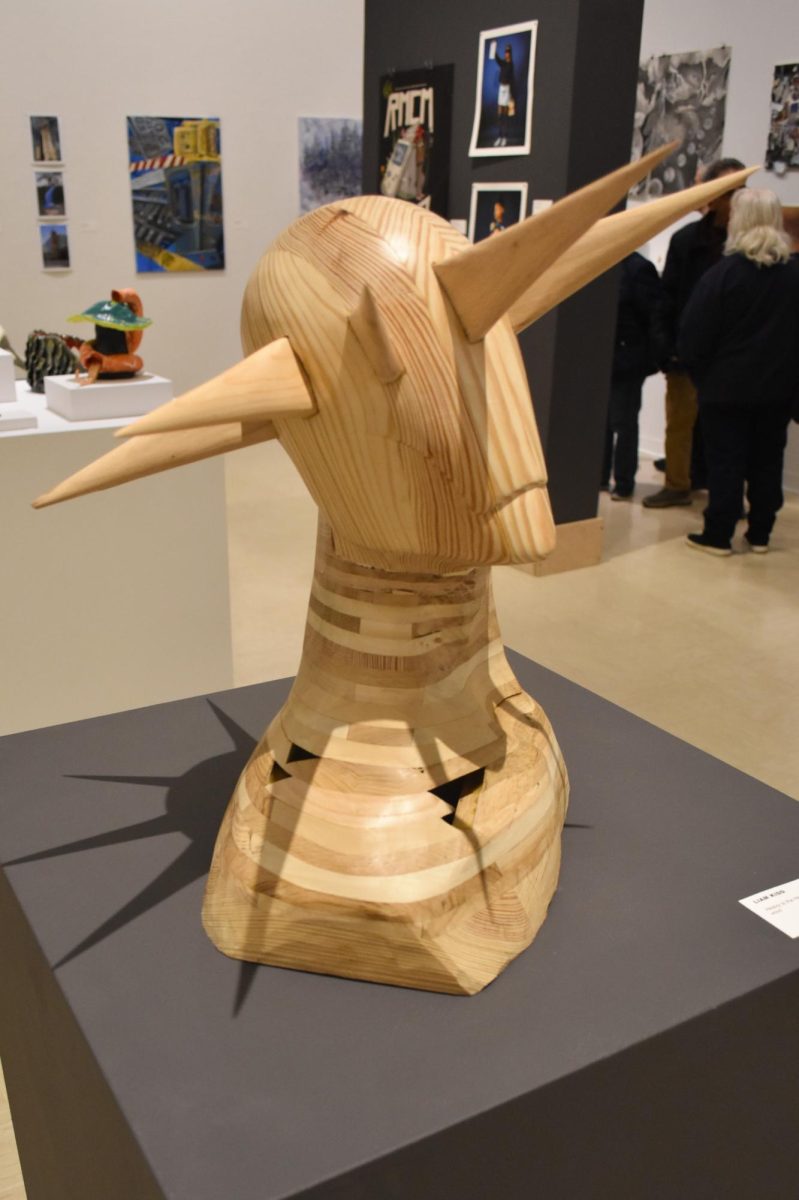“You is kind, you is smart, you is important.”
These are encouraging words from the Academy Award nominated film “The Help,” directed by Tate Taylor.
“The Help” has opened up the eyes of many University of Akron students to sensitive racial material.
Adapted from Kathryn Stockett’s best-selling novel of the same name, the film has a number of nominations at this year’s Academy Awards. Viola Davis, who plays Aibileen Clark in the film, is nominated for the award of Actress in a Leading Role. Both Jessica Chastain (Celia Foote) and Octavia Spencer (Minny Jackson) are nominated for the award of Actress in a Supporting Role. And of course, “The Help” is nominated for the most coveted award, Best Picture.
The film takes place in Jackson, Miss., in the 1960s, where racial tension is high. Black maids cook, clean and raise white children, yet they are not allowed to use the restroom in the homes that they spend so much time in.
Skeeter Phelan, played by Emma Stone, is a bubbling journalist who is interested in writing from the perspective of the maids.
“How do you feel about raising a white child when yours is at home with someone else?” Skeeter asks. She convinces Aibileen Clark, a tired and fed up maid, to secretly share her stories for a book that will possibly be put into publication.
At first, Aibileen is hesitant. With all of the racial tension going on, she fears for her life. But as the drama of being a maid starts to really weigh on her, she opens up to Skeeter. And after Clark opens up, many other maids follow suit. The women talk about the day-to-day hardships and unfairness they face.
As the women share their stories, new stories are being created each day they go to work. Story sharing with Skeeter begins to have an effect on the women. They start to become more and more intolerant of prejudiced behavior toward them. Soon, everyone’s eyes are opened up, and Skeeter and her collection of stories have caused an upheaval in Jackson.
This film really takes viewers to the time period. The music, the dress, the speech…it’s all authentic. Seeing “colored” signs on various facilities add to the authenticity of the film.
It is a film that truly awakens ones emotions. Despite the serious subject matter and powerful dialogue, comedic moments exist in the film also.
The acting in this film is absolutely phenomenal. It is easy to see why Viola Davis has been nominated for an Academy Award.
“Viola Davis brought a lot of heart to the role and made you feel for her character,” University of Akron senior Shaina Pearlman said.
Octavia Spencer and Jessica Chastain are just as deserving for their Academy Award nominations. Spencer plays the witty and smack-talking Minny Jackson. Chastain plays a helpless and ditzy want-to-be housewife.
“Octavia Spencer was hilarious and perfectly cast,” Pearlman said.
Emma Stone delivered a solid performance as well. It was interesting to see Stone act in a serious film. Viewers are used to seeing her in comedic films such as 2011’s “Crazy, Stupid, Love” and 2010’s “Easy A.” Although her acting in “The Help” did not garner an Academy Award nomination, she still gives an Oscar-worthy performance.
Pearlman believes “The Help” shows viewers how drastically racial situations have changed since the sixties.
“It really reinforced how far we’ve come,” she said.
University of Akron sophomore Rachel Backer said the film taught her to treat everyone with respect.
“Be kind to all walks of life, no matter if you are white, black, Hispanic, Islamic, whatever,” Backer said. “I had a new outlook on life and a better understanding on how it was back then.”
There are a number of other lessons in the film that students can learn from, such as placing yourself in another’s shoes, to see the view from another person’s eyes.
Will “The Help” win the Academy Award for Best Picture? We won’t know until Feb. 26. Awards aside, the film is definitely worth seeing.
“I would suggest it to anyone, guy or girl,” Backer said.















